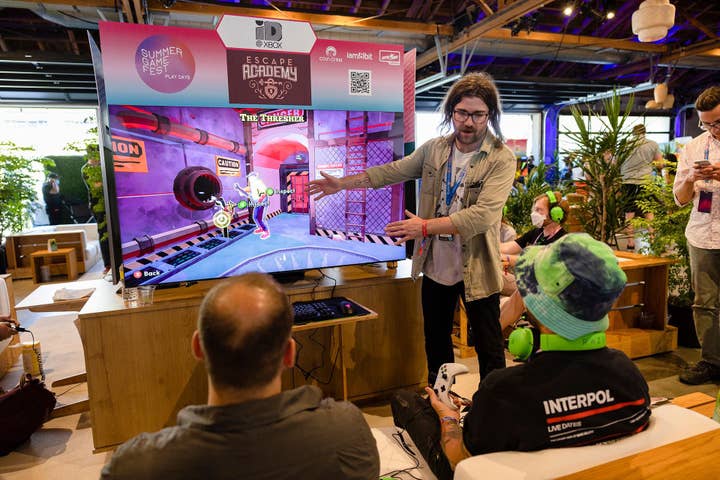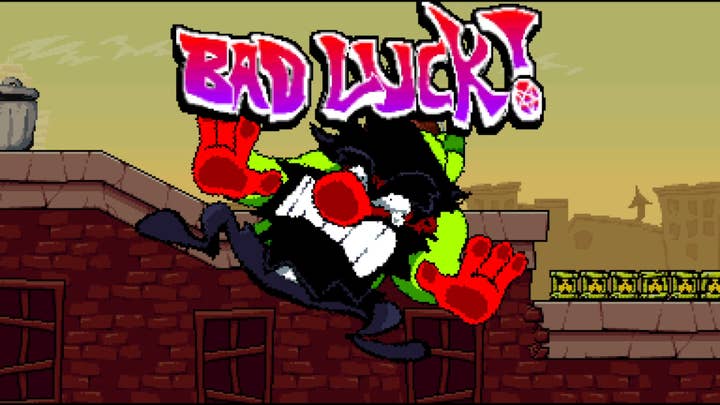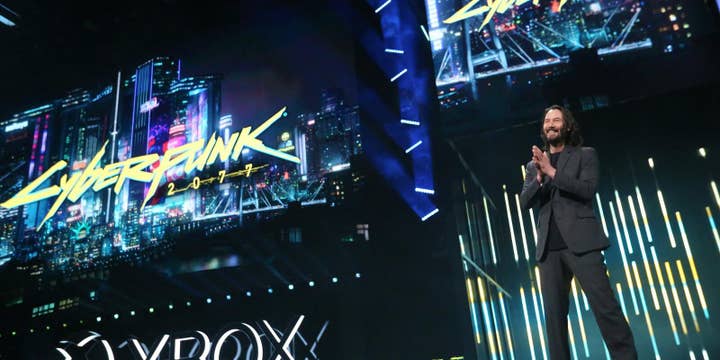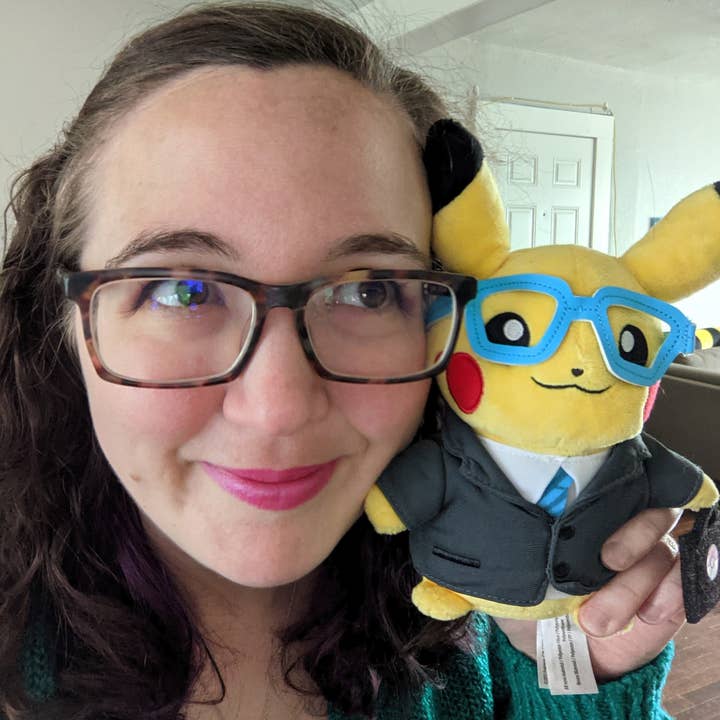Getting your game covered, as told by journalists
Games journalists assemble to give indie developers tips on how to efficiently pitch to the press
With the rise in the number of indie games in recent years, discoverability hasn't only become an issue on storefronts.
During Not-E3 earlier this month, hundreds of indies were showcased. Day of the Devs showed 16 games. Guerilla Collective featured 40 indies. The Wholesome Direct alone presented 90 titles.
Undoubtedly, many indies in these presentations will probably turn out to be excellent games. But due to their sheer number, very few of them will actually garner meaningful press coverage that could increase their chance of success. How can you find the rare gems when there are so many games?
Ultimately, all the smaller studios are competing for a piece of the press pie -- and the pie isn't that big.
"When you're writing to a general audience it's really hard to get indie coverage that actually gets read. But not all hope is lost!"Ana Diaz
"There are a lot of aspects of a game that might be of interest to developers that aren't of interest to a wider audience," highlights Polygon's games writer Ana Diaz, who also took part in a panel about how to pitch your game to the press at Game Devs of Color Expo 2020.
"I am not writing to developers even though we cover your games. I'm writing to my 20-year-old cousin who's in college and can only afford one or two games a year and has over 1,000 hours in Fortnite; I'm writing to all the people on TikTok who were obsessed with meticulously designing their Animal Crossing islands. This doesn't mean I don't want to cover indie games, but when you're writing to a general audience it's really hard to get indie coverage that actually gets read. But not all hope is lost!"
The GamesIndustry.biz Academy talked to journalists from IGN, Rock Paper Shotgun, Polygon, Gayming Magazine and more, and asked them what makes them tick and how you can maximise your chances of getting press coverage.

Make sure you have the basics in place
Before doing any sort of outreach efforts or PR, make sure you have some basic information readily available for any journalist who might want to look you up. And that starts with having a website with easily accessible contact details.
"[Indies] often don't have websites set up for their games, which can be difficult for research purposes," points out Ty Galiz-Rowe, founder and editor-in-chief of Uppercut and deputy editor at Gayming Magazine.
And keep that website up to date, Rock Paper Shotgun's deputy editor Alice Bell adds.
"A bunch of indie dev websites are just single page placeholders saying 'We're PixelWool studios!', and from my point of view that's kind of useless. If you can, have clear, updated sections about the games you've made and your studio.
"Lead with the game you're making right now. I've seen a few sites recently that land on the blog. Dev blogs are cool when I start looking for more context and info, but if they're the first thing on the front of the website, it's a lot of text before I have the core facts about the game. And having some good images we can use on the website -- especially if the game isn't out yet -- is always a big help."
"[Indies] often don't have websites set up for their games, which can be difficult for research purposes"Ty Galiz-Rowe
Having readily available images was mentioned by everyone we talked to, with Galiz-Rowe adding that ideally these need to be "high-quality, but not overly gigantic" and IGN reporter Rebekah Valentine saying that screenshots "without a ton of text/logos/menus on them" are best.
"Think photo mode style stuff, or just a good visual of what your game looks like," she continues. "Mobile devs: get me some horizontal images. If your game only plays vertically, put that vertical format into a horizontal image or put some nice concept art out there. We can't do anything with vertical images."
Spawn On Me's founder Kahlief Adams adds that if there's a PR company handling your launch, do mention it and include a way to connect with them.
Our interviewees also all recommended developers to have a press kit readily available on their website, so all the essential info is gathered in one place. Rami Ismail's Presskit template is a good place to start. The GamesIndustry.biz Academy will have a specific guide dedicated to press kits in the coming weeks so keep an eye out.
"Having a press kit will further ensure I can write about your game on a whim," continues Diaz. "The timelines games journalists work on are infinitely short -- same-day deadlines are pretty common. I'm writing loads of articles each week. If I want to write about your game in some off time, make sure that will actually be possible.
"The one thing I would add that's becoming more common is including a gif of your game. Or if you have something that got a lot of likes or retweets on Twitter, add that to your press kit. When a tweet goes viral, that's something that is clearly of interest to consumers and something a journalist would be interested in highlighting."

Check that your pitch matches who you're contacting
Not all game outlets and journalists cover all topics. Before you pitch something, do take the time to look into the publication and person you want to contact.
"The biggest mistake I see is not doing basic research on who you're contacting before you reach out," Valentine says. "I get a lot of emails from indie developers that are asking me for things that are not part of my job at all. I'm a reporter, but I get emails with requests for me to do reviews or previews all the time.
"Take the time to look at an outlet's masthead and make sure that, 1) they have previously covered the kind of thing that you're making in the first place, and 2) that you're emailing the right person."
"The biggest mistake I see is not doing basic research on who you're contacting before you reach out"Rebekah Valentine
Big publications will have specific staff for specific sections (news, features, previews/reviews), and most outlets also usually have a generic address (news@, contact@) that they like people using because it goes to the entire team.
"Knowing what an outlet specialises in is really, really key when looking for coverage," Galiz-Rowe concurs. "Uppercut, for example, by and large doesn't cover news. We mostly cover games in a preview capacity or after they've come out, so sending basic announcement press releases isn't really helpful. On the other hand with Gayming, I do cover day-to-day news, but with the caveat of it being queer or queer-adjacent, which again limits what news is actually relevant for me."
Diaz advises to demonstrate you've done your research by immediately making it clear that your email is personalised, which maximises the odds of getting a journalist's attention.
"I tend to cover turn-based RPGs and platformers, so lead with that in your subject line," she says. "And then follow up. Always follow up."
This applies to content creators too, Adams notes, adding that whether it's YouTube channels or traditional publications, indie devs should always think about smaller outlets too, and not just the big names.
"Devs can sometimes not understand the audience of a journalist or content creator, so they don't fully understand the angles those creators will take when discussing the game they are making," he highlights. "I would also say that lots of times developers will overlook creators that really do have a fantastic fanbase, to work with larger creators who don't necessarily care about their game."

Diaz adds that developers need to understand that reaching out to games journalists is about "cultivating a longer relationship" with them, not about instant results.
"Nine out of ten times, the moment they pitch me isn't the right time to write about their game," she says. "It might be that it is too early for us to write about their game or it's not a fit for the time being. However, if I'm working on something where it will work, that developer and their work would likely become a source for that story. It's kind of like building a giant deck of cards, I want to know your work so when the time comes to play your game as a card (so to speak), I have that card and can introduce people to you and your game."
If you've done your research properly and you've found the right contacts, this increases your chance to get "one or two die-hard advocates for your game," which Valentine says is "critical."
"Obviously, reach out to anyone who it makes sense to reach out to. But take some time to look into folks in the media who you see on social channels playing and loving games like yours. Reach out to those folks a bit more personally, and tell them why your game is like those other games, and also what sets it apart. Get them in your corner, and set them up if they ask for things like codes, interviews, and so on."
She gives an example: "There's a game called AntonBlast that just got announced. They reached out to me and suggested I might like it because I had talked about loving Wario Land 4, and it had similar vibes. They had a gif. Yeah, that's Wario Land 4! I'm in. It's too early for me to cover now, but I asked them to reach out closer to launch. You bet when they do I'm going to remember it and be very excited to hear more."

Getting your messaging right
Now you've found the perfect journalist, how do you actually pitch them your game? Email is usually the way to go; when it comes to messaging journalists on social media, our interviewees were divided.
For some, it's a massive faux-pas as their social media is a personal space where work messages don't have their place. For others, it's the best way to reach out to them so it doesn't get drowned in a sea of emails. So before contacting a journalist, do check if they have mentioned their contact preference anywhere, as there is no hard rule with this one.
"As far as email goes, I want a clear subject that lets me know exactly what I'm being contacted about," Galiz-Rowe says. "In the message itself, I want to see links to social media, the game website, and any trailers/demos that are available so I can do my research and get a vibe for what the game actually is."
"You want to grab my attention, as well as sell what the game is, as quickly as possible, and stop me moving on to the next email. Images do that"Alice Bell
The subject line has more importance than you might think; use it as a hook to grab a journalist's attention. Game writers receive hundreds and hundreds of emails every day and getting them to go past the subject line and into the body copy is already a win.
"Xbox or Ubisoft can get away with a subject line saying 'NEW ASSASSIN'S CREED' or 'XBOX BRINGS YOU NEW FPS MUGFACE!', but you probably can't," Bell says. "Tough to swallow, maybe, but if this is your first game, or you're a small studio who didn't get huge press on previous games, don't lead with the title of your new one as a subject. Because I won't know what it is. Instead, consider making an interesting hook with reference to known quantities: 'Hollow Knight meets Stardew Valley in this new roguelike' or 'Crafting like you've never seen it before' or similar.
"I get a lot of emails from devs, especially solo devs, who just send a text email with nothing visual. And you might think, 'Well, I link to my Itch page, and that has pictures!' but you want to grab my attention, as well as sell what the game is, as quickly as possible, and stop me moving on to the next email. Images do that. Worth a thousand words, and so on."
Bell points out that, generally speaking, there are four or five stages of coverage for a game:
- Announcement/reveal
- Previews (which are becoming less important these days, she points out)
- Reviews
- Launch
- Post-launch, if you have major updates or DLC
"You should make it clear in your email which stage you're at," she continues. "For indie games, especially smaller ones, you're generally less likely to get coverage at the first stage if you're just saying 'Thing exists!'. So that's why I like getting emails from indie devs saying 'Thing exists... and you can try it right now!'. Being able to play it gives me a relationship with your game, and makes me more likely to follow its progress. I'm also more likely to earmark it for review down the line even if we don't post about it on first contact."
- Pitching with honesty
When it comes to the pitch itself, Adams highlights the importance of showing how you're different, and reminds developers to be genuine and not oversell.
"The ideal pitch is for you to share what your game is about if there are any elements that make it really stand out (tech features, protagonists from underrepresented groups, doing something other games aren't doing)," he says.
"Honesty is super important because, as a person who's been doing this for a long time now, I can sniff when something is off about your game. I can tell once I play it where misalignments are pretty prevalent, and that isn't a great look since I'm going to be honest about my opinion about the game to my audience."

Both Bell and Valentine shared a rough outline of what makes for a good pitch. While the order varied between the two, the essential elements are the same:
- Good crafted hook in the subject line
- Quick introduction: who you are, name of studio, release window, platform(s)
- One sentence explaining what you're pitching
- Images or gif of what your game looks like
- A more detailed description. Generally one paragraph on what the game is, how it plays, what is cool about it, and then another on what specifically you're offering. If your studio stands out for any specific reason, include it here too
- Sign off with links to assets (include the playable demo if you have one)
Valentine adds that if you've worked on something else the journalist might know about or has covered before, mention that up front, while Bell says a link to a playable build and demo can be particularly effective to get the edge on the competition.
"It doesn't have to be perfect, and most games journalists will understand what an early build means, and won't monster it for having bugs or being incomplete," she says. "If your first contact about your game also allows me to play the game, I am so much more likely to write a post going 'hey this cool thing is in development at the moment, innit cool?'"
Don't forget to actually say what you want: A news story? A review? A preview because you have a playable demo? An interview?
"If so, what's the hook of your pitch that's going to get my readers interested? Tell me what you expect me to do with this email," Valentine adds.
"Honesty is super important because, as a person who's been doing this for a long time now, I can sniff when something is off about your game"Kahlief Adams
And absolutely follow up if necessary. Diaz says that not following up is a very common mistake that devs make when contacting journalists.
"The people who follow up tend to get my attention," she says. "I think a lot of people can feel bad for messaging me multiple times, but I don't mind so long as people are respectful and understand I have dozens of requests at any point."
If you don't know where to start, Galiz-Rowe advises making a simple pros and cons list of your game. Then just lead your pitch with what your team sees as the pros.
"I think it's always more compelling to understand why someone is excited about something, than to just list features or try to oversell it based on market trends," they explain.
If you struggle with communicating effectively in this professional context, don't hesitate to consult a PR professional, or ask for help in games industry groups on Discord, Slack or other social platforms. Bell points to Failbetter Games' communications director Hannah Flynn as an example, who periodically offers Steam Store pages reviews, a "simple but effective" way to "make sure it's selling your game as best it can."

- Red flags
While some of the don'ts of pitching to the press might be obvious from the do's highlighted above, our interviewees shared a few red flags that make them rethink potential coverage. First is the phrasing of the email.
"Emails that feel like they were written from a form letter always go into a bin," Adams says. "You have to make sure that you understand why you're reaching out directly to our outlet. We are pretty niche so it helps to understand why we bring value to your game."
On the other hand, don't be overly friendly or careless, with Valentine noting that a red flag for her would be a "messy copy or an email that looks like you wrote it at 3am while drunk."

She continues: "This sounds mean, but it's true: any email that tries to use a sympathy plea like 'your coverage could really save my game' or 'you writing about this could make or break my game'. Never do this. Journalism is not altruism and it's going to make me less inclined to write, not more, because our first interaction was you trying to manipulate me."
Bell adds: "An email that is just dry text, subject is something like 'Please try the game I made', and doesn't link through to a known quantity like a Steam store or Itch page but just attaches a zip... 50/50 you'll get caught in our spam filters that way, to be honest."
Finally, don't send unsolicited codes, Galiz-Rowe says.
"Sending code that people haven't asked for will usually result in the code being ignored or returned. Straight up dropping an unrequested code in my inbox when we've never interacted is also a red flag for me because it indicates you don't respect my time and haven't looked into me personally.
"Another [red flag] would be giving off an air of entitlement when it comes to coverage."
Journalists' advice in one sentence
We asked our interviewees to boil down their advice to indies to one point. So here's what to remember if you already forgot everything above:
- Kahlief Adams: "When pitching your game, make it easy for journalists and content creators to have the resources they need to get info out about your game. Sharing information about how and why your game is unique is key and keeping in touch through the dev cycle is important."
- Alice Bell: "Know why what you're making is cool, and then actually show me what that is." (After Not-E3 week, Bell also added: "Look up when the big events like E3 are on and then do not, under any circumstances, send the press release for your small one-person indie game right in the middle of when Bethesda and Xbox are revealing new games.")
- Ana Diaz: "It's a long game, not a short game and I want to get to know you and your work. I know it's hard to maintain social media and that's extra work so I appreciate developer's work on this - but if you take away anything it's that you should just reach out to me, and ask to be added to my Twitter list so I will just see your work regularly. That way you won't even have to pitch me, I will just see what you're working on."
- Ty Galiz-Rowe: "If you want to have your game covered, make it easier for us, not harder."
- Rebekah Valentine: "Take the time to get to know the places and people you're pitching to, and how they might fit together with the game you're making in a way that benefits both you and them."
More GamesIndustry.biz Academy guides
Our guides cover various aspects of the publishing process, whether you're a young game developer about to start a new project or an industry veteran:
